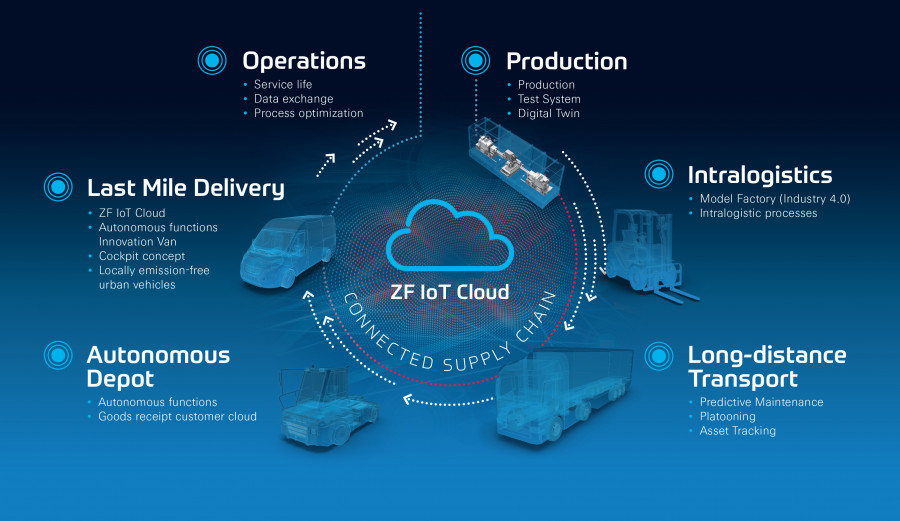ZF: “It is quite possible that after the Corona pandemic, customer-supplier relations will be realigned"

Sources at ZF explain “since the first time the virus spread in China, we have formed task forces to deal with this completely new situation. This has included maintaining our supply chains despite all the challenges, which means that we are kept supplied with parts and that we supply our customers reliably. From many years of experience, we already have a proven risk management system with strict monitoring. This includes being able to fall back on alternative suppliers and to support suppliers when needed. Our first task is to ensure an orderly production ramp-up and get the established supply chains back on track. Only when we have regained certain stability, such strategic questions will arise. We cannot answer them for ourselves alone, as our industry is closely connected”.
From the German multinational say “to maintain our supply chains and to be able to react quickly to short-term interruptions, we have established a network long ago to make use of alternative delivery options. In global crises such as the present one, in which the world economy comes to a virtual standstill almost simultaneously, even a more regional supplier structure brings only limited benefits. Although it is difficult to transport goods across borders, it still works – the problem is the extensive production stops. We have created uniform standards within the company which infection prevention measures we will apply when we resume production. Our risk monitoring system works. This has been shown not least by the fact that we could keep our supply chains stable until the end”.
For ZF “it is quite possible that after the Corona pandemic, customer-supplier relations will be realigned. But since we are still in the middle of the crisis, it is difficult to say which direction this will take".
ZF is paying attention to two aspects of this crisis... (Read the complete information in the next issue of AutoRevista nª 2.350. See also this information in Spanish in section Proveedores on our website).

A requerimiento de AutoRevista sobre la imposición de aranceles del 30% a vehículos y componentes de la Unión Europea por parte de la Administración Trump, desde CLEPA señalan que "instamos encarecidamente a la UE a que impulse una exención para las piezas de automóviles en cualquier acuerdo.

La Asociación Española de Renting de Vehículos acaba de presentar su informe anual, y con él cifras más que optimistas para el segmento. Tanto es así que el parque de vehículos en renting ha crecido el 6,11% durante el primer semestre de este 2025 (una cifra levemente superior a la prevista por la asociación, el 6%), lo que implica que este asciende a 984.354 unidades totales.

Nissan ha construido un nuevo centro de reacondicionamiento de vehículos en la Planta de Nissan Ávila, diseñado para ofrecer a los clientes la experiencia de reestrenar un coche, gracias a un proceso altamente especializado y con los estándares de calidad Nissan.

PowerCo Battery Spain (PowerCo) y el ITE (Centro Tecnológico de la Energía) han establecido un acuerdo de colaboración con el objetivo de incrementar las capacidades formativas sobre esta industria pionera en España.

La filial española de Dacia ha designado a un nuevo Comité de Dirección con el propósito de continuar creciendo en 2025, después de lograr los mejores resultados de su historia en el primer semestre del año con un 9,6% de la cuota del mercado a particulares.
